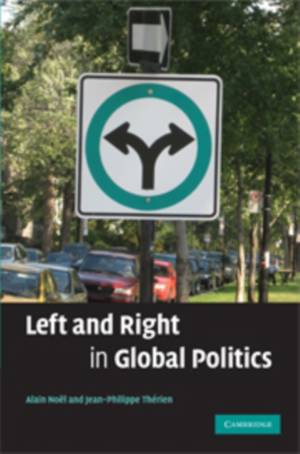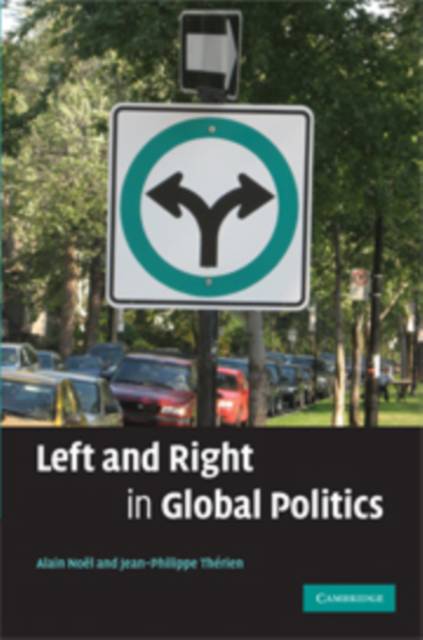
Je cadeautjes zeker op tijd in huis hebben voor de feestdagen? Kom langs in onze winkels en vind het perfecte geschenk!
- Afhalen na 1 uur in een winkel met voorraad
- Gratis thuislevering in België vanaf € 30
- Ruim aanbod met 7 miljoen producten
Je cadeautjes zeker op tijd in huis hebben voor de feestdagen? Kom langs in onze winkels en vind het perfecte geschenk!
- Afhalen na 1 uur in een winkel met voorraad
- Gratis thuislevering in België vanaf € 30
- Ruim aanbod met 7 miljoen producten
Zoeken
€ 175,95
+ 351 punten
Uitvoering
Omschrijving
Few notions are as universal as the idea of a left-right divide in politics. Despite its death being frequently foretold, the left-right metaphor remains the most common lens through which to interpret political life locally, nationally and globally. Left and Right in Global Politics argues that the left-right divide connects these different levels into a world political debate. Interpreting the left-right dichotomy as an enduring debate about equality, Noël and Thérien analyse opinion polls and social discourses to demonstrate how this debate shapes both individual and collective views of public affairs. Setting their findings in a historical perspective, they then show that for more than two centuries the conflict between progressives and conservatives has structured both domestic and international politics. They conclude by discussing the implications of their argument for the analysis of world politics, and contend that the left-right opposition is here to stay.
Specificaties
Betrokkenen
- Auteur(s):
- Uitgeverij:
Inhoud
- Aantal bladzijden:
- 264
- Taal:
- Engels
Eigenschappen
- Productcode (EAN):
- 9780521880015
- Verschijningsdatum:
- 29/05/2008
- Uitvoering:
- Hardcover
- Formaat:
- Ongenaaid / garenloos gebonden
- Afmetingen:
- 152 mm x 229 mm
- Gewicht:
- 544 g

Alleen bij Standaard Boekhandel
+ 351 punten op je klantenkaart van Standaard Boekhandel
Beoordelingen
We publiceren alleen reviews die voldoen aan de voorwaarden voor reviews. Bekijk onze voorwaarden voor reviews.









